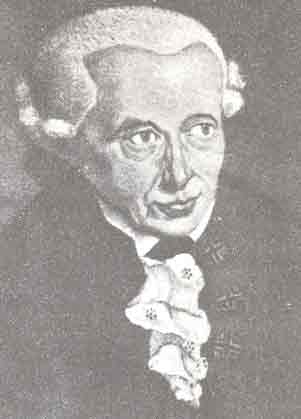People
Philosophers
Immanuel Kant (1724-1804)
Immanuel Kant (1724-1804) [Plato] [George Berkeley]. German metaphysician, one of the greatest figures in philosophy, born in Königsberg (now Калининград -Kaliningrad-, Russia), generally regarded as the last major philosopher of the early modern period and one of history's most influential thinkers.
He became professor of logic and metaphysics in 1770 and achieved wide renown through his writings and teachings.
Kant is most famous for his view -- called transcendental idealism -- that we bring innate forms and concepts to the raw experience of the world, which otherwise would be completely unknowable. Kant's philosophy of nature and human nature is one of the most important historical sources of the modern conceptual relativism that dominated the intellectual life of the 20th century -- though it is likely that Kant would reject relativism in most of its more radical modern forms. Kant is also well-known and very influential for his moral philosophy.
One famous citation, "the starry heavens above me and the moral law within me", sums up his efforts: he wanted to explain in one systematic theory, those two areas or realms. Isaac Newton [Famous Smoking Pipes] had developed a theory of physics that Kant wanted to build his philosophy upon. This theory involved the assumption of natural forces that humans cannot sense, but are used to explain movement of physical bodies.
His interest in science also led him to propose in 1755 that the solar system was created out of a gas cloud in which objects condensed due to gravity. This hypothesis is widely regarded as the first modern theory of solar system formation and is the ancestor to current theories of stellar formation.
Immanuel Kant (1724-1804)

04-22-2004